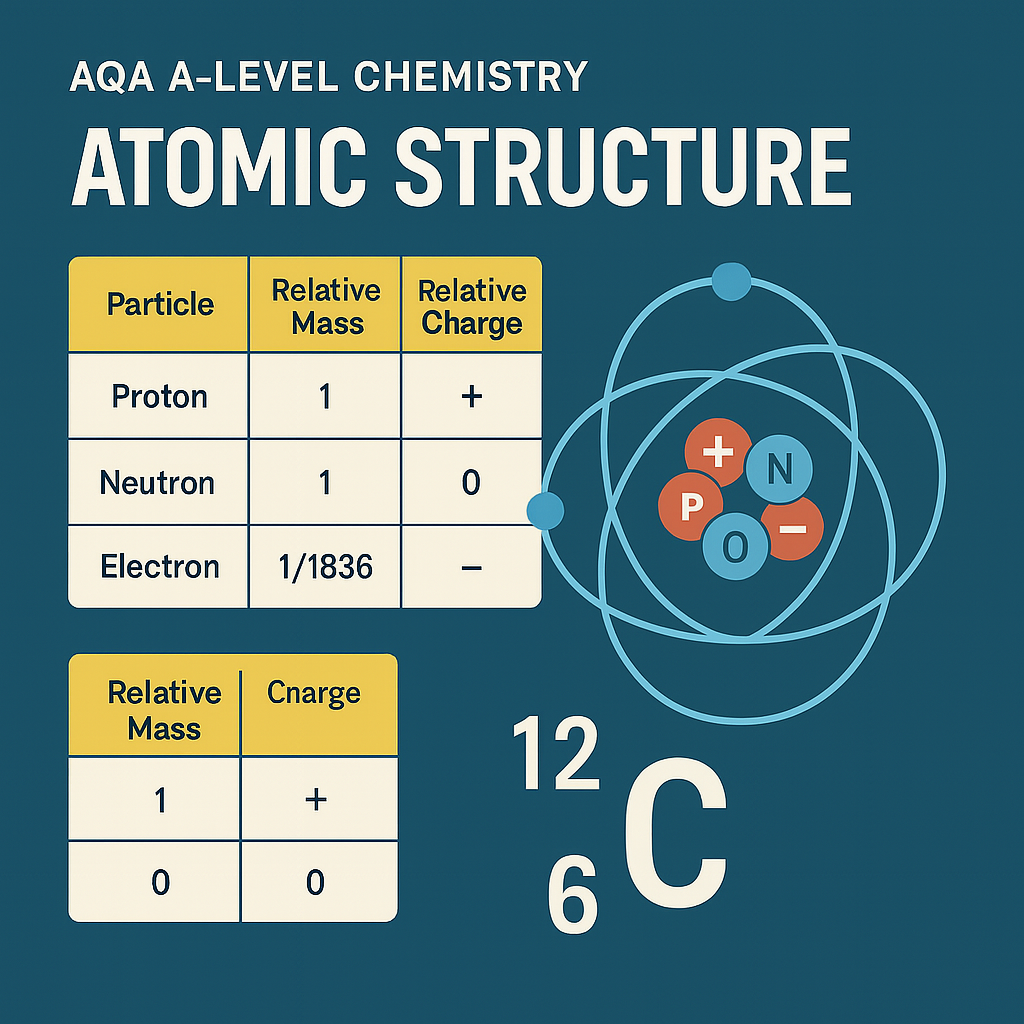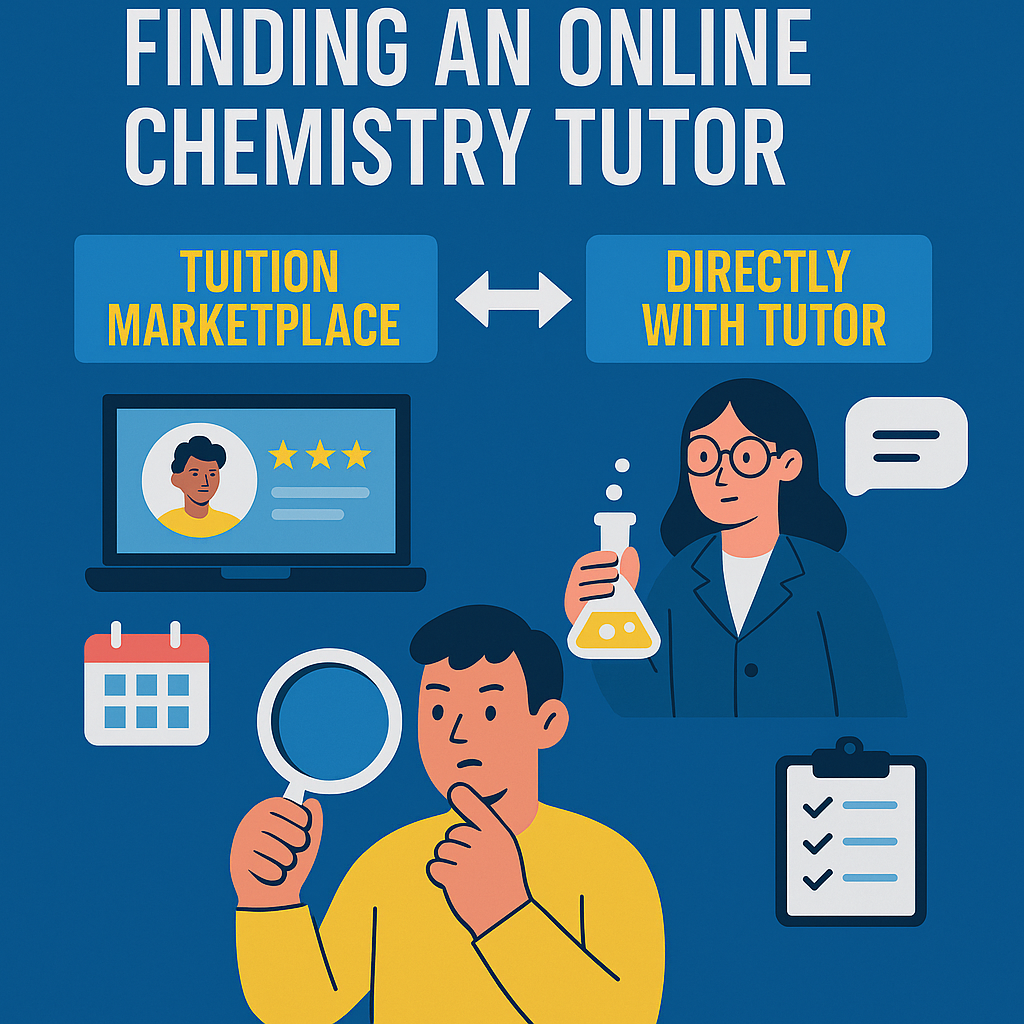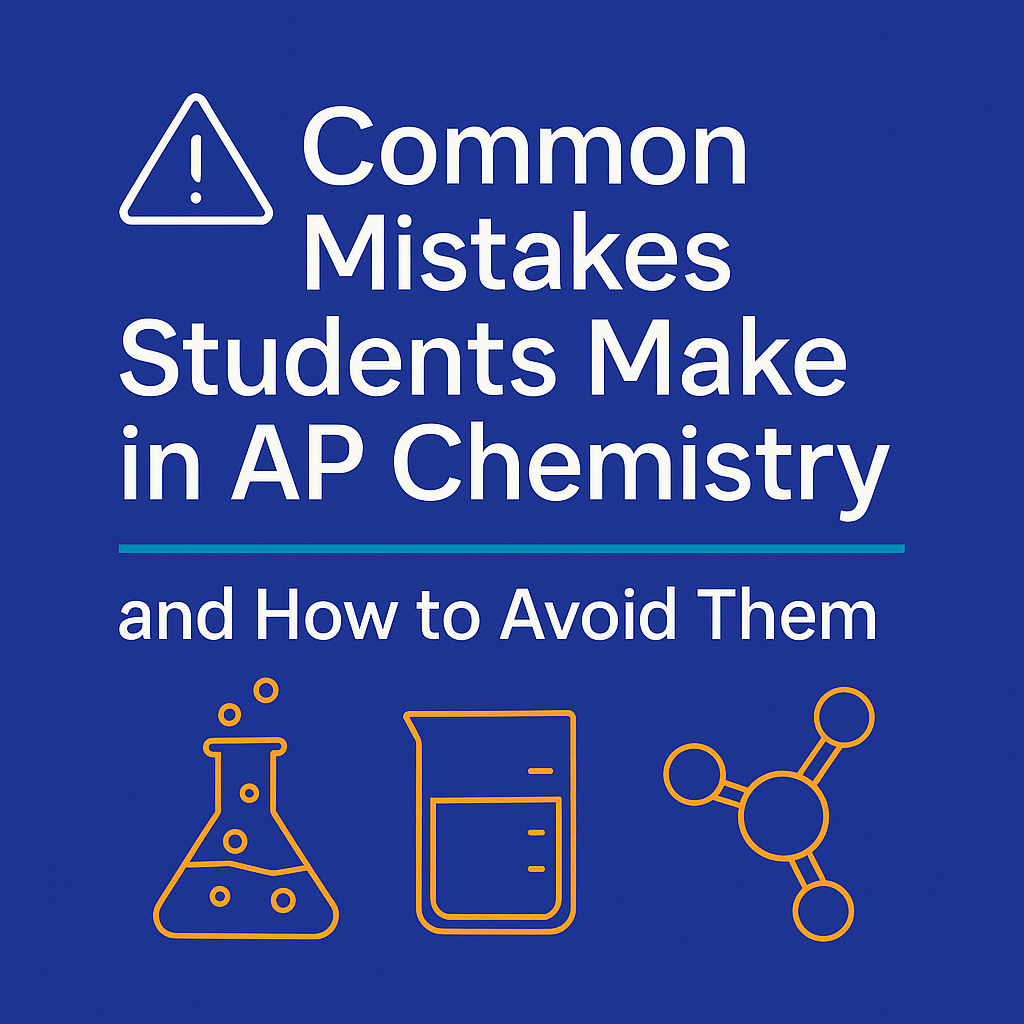How to Choose the Right Chemistry Tutor: A Complete Guide for Parents and Students
If you choose carefully, the right tutor will not only improve grades—but transform how a student feels about chemistry altogether.
Whether you’re a parent looking for extra support for your child, or a student seeking to boost your grades, choosing the right chemistry tutor can feel overwhelming. With so many options online and in-person—varying in qualifications, experience, teaching styles, and prices—how do you know who’s genuinely going to make a difference?
In this comprehensive guide, we’ll walk you through the key factors to consider when choosing a chemistry tutor, the questions to ask, and the red flags to avoid. By the end, you’ll feel confident finding the right match—one that supports long-term success, not just short-term homework help.
Why Chemistry Requires a Specialist Tutor
Chemistry is one of the most demanding academic subjects—combining abstract concepts, complex calculations, and practical application. Many students struggle because:
The subject builds cumulatively—missing one topic causes confusion in the next
It requires both understanding and memorisation
Exam technique is just as important as content knowledge
Key skills like equation balancing, graphing, and practical design require focused support
That’s why generic science tutors often fall short. To thrive in chemistry, students need a tutor who knows the syllabus, the exam board, and the ways students misunderstand the material.
Step 1: Define Your Goals
Before you start searching for a tutor, be clear on why you need one.
Common reasons include:
Catching up after a poor mock result
Strengthening exam technique
Preparing for 11+, 13+, GCSE, IGCSE, A-Level, or IB Chemistry
Preparing for entrance exams (e.g. Oxbridge or scholarship interviews)
Building confidence and filling knowledge gaps
Home-education or private candidate support
The best tutors tailor their sessions to specific goals—so clarity at this stage will save time and ensure you get the most from the lessons.
Step 2: Look for Subject-Specific Expertise
Not all tutors who “teach chemistry” are true chemistry specialists. Ask:
What qualifications do they have in chemistry?
Do they have a degree in chemistry or a related science?
Have they taught your exam board before?
Do they have experience at the level your child is studying (GCSE, A-Level, IB, etc.)?
Ideal credentials include:
A degree in chemistry, biochemistry, or a related field
A teaching qualification (e.g. PGCE or QTS)
Experience with AQA, OCR, Edexcel, CIE, or IB syllabuses
Tutoring experience across multiple year groups
Some of the best tutors are former teachers, examiners, or full-time professional tutors with years of experience and strong academic backgrounds.
Step 3: Check Their Familiarity With Your Exam Board
Chemistry content may be broadly similar between boards—but assessment style, terminology, and practical emphasis vary.
For example:
AQA often integrates required practicals into longer-answer questions
OCR A and B require different approaches to applied content
Edexcel B and Salters follow a contextual curriculum
CIE uses more technical language and may assess practicals via alternative-to-practical papers
IB Chemistry has internal assessment (IA) and data-based paper components
Ask your tutor:
Have you worked with this exam board before?
Can you provide targeted past paper support?
Are you familiar with the mark schemes and command words used?
This ensures your child is learning with exam relevance, not just textbook explanations.
Step 4: Evaluate Their Teaching Style
Every tutor has their own style—some are highly structured, others more fluid and conversational.
The key question is: Does their teaching style suit your learning style?
Look for a tutor who:
Encourages students to ask questions
Explains complex ideas simply
Adjusts pacing based on confidence and performance
Offers strategies for active recall, problem-solving, and exam technique
Gives regular feedback
Can balance conceptual explanation with applied exam skills
A short trial session or consultation can reveal a lot about their communication skills and how well they connect with students.
Step 5: Consider Online vs In-Person Tutoring
Both options can be effective—but each has pros and cons.
Online tutoring:
Flexible and accessible from anywhere
Ideal for busy families or international students
Easier to record sessions or share digital notes
Often a wider choice of tutors, especially for exam-specific or high-level support
In-person tutoring:
Helpful for younger students or those who need more structure
May suit learners who struggle with online platforms
Best for hands-on activities or physical paper resources
✅ Tip: Many excellent chemistry tutors work exclusively online—especially for GCSE, A-Level, and IB. Prioritise expertise and results over geography.
Step 6: Review Testimonials and Results
A good tutor should have:
Testimonials or case studies from past students
A proven track record of grade improvements
Experience with students at similar levels
Don’t hesitate to ask:
“Can you tell me about a student who improved significantly under your guidance?”
“How do you measure progress over time?”
“What kind of feedback do you receive from families?”
Look for consistent outcomes like:
A student moving from Grade 5 to Grade 8 at GCSE
An IB student raising their Chemistry HL from 4 to 6
Entrance exam or scholarship offers secured after targeted tuition
Step 7: Ask About Lesson Structure and Homework
Structured lessons with clear objectives are a sign of a professional tutor.
Ask:
How do you plan sessions?
Do you provide resources or worksheets?
Will my child get homework or practice questions between lessons?
How do you track progress?
Many high-level tutors also provide:
Past paper questions
Exam-style feedback
Model answers and mark scheme breakdowns
Ongoing support outside lessons (e.g. marking work)
Step 8: Clarify Pricing and Scheduling
Chemistry tutors typically charge based on:
Experience
Qualifications
Level of the student
Specialisation (e.g. IB, Oxbridge, scholarship support)
Typical rates (UK-based):
£40–£60/hour for GCSE or IGCSE
£60–£90/hour for A-Level, IB, or university admissions prep
£100+/hour for senior specialists or Oxbridge admission coaching
Make sure you clarify:
Cancellation policy
Frequency of lessons
Whether sessions are weekly, ad hoc, or intensive
Whether packages are available for exam prep
Step 9: Watch for Red Flags
⚠️ Be cautious if the tutor:
Avoids answering specific questions about exam boards
Doesn’t assess your child’s current level before starting
Lacks clear lesson structure or feedback systems
Uses only generic content rather than tailored support
Promises guaranteed grades (nobody can guarantee this!)
The best tutors focus on growth, understanding, and exam readiness—not gimmicks.
Step 10: Trust Your Instincts and the Student’s Feedback
After the first 1–2 sessions, ask:
Did the student feel listened to?
Was the tutor clear and helpful?
Did the lesson feel productive?
Is the student more confident or more confused?
Chemistry is a demanding subject, so the tutor should make the student feel supported, encouraged, and motivated—not judged or overwhelmed.
You’re looking for a long-term learning partner, not just a quick fix.
Bonus: What Makes an Outstanding Chemistry Tutor?
Based on hundreds of successful tuition cases, the best chemistry tutors tend to:
Teach with energy and clarity
Break down tough ideas into manageable parts
Ask probing questions to test understanding
Know the exam board inside out
Adapt their methods to suit each learner
Hold students accountable with kindness and consistency
Use strategies like flashcards, past paper logs, exam checklists, and progress tracking
They don’t just “know” chemistry—they teach it exceptionally well.
Final Thoughts: Choosing the Right Tutor Makes a Lasting Difference
A great chemistry tutor does more than just explain the periodic table—they:
Build confidence
Fill gaps in foundational knowledge
Develop strong exam technique
Turn struggling students into capable, independent learners
If you choose carefully, the right tutor will not only improve grades—but transform how a student feels about chemistry altogether.
Need Expert Chemistry Tuition?
Book a free consultation with Dr Marguerite Quinn, a qualified and experienced online chemistry tutor specialising in GCSE, A-Level, and IB Chemistry. With over 3,470 hours of experience and a PhD in chemistry, Marguerite supports students worldwide with tailored strategies that deliver results—whether you're aiming for a pass or an A*.





Understand AQA A-Level Chemistry Section 3.1.1.2 on mass number and isotopes. Learn key definitions, isotope notation, calculations, and how this topic builds your scientific and exam skills.